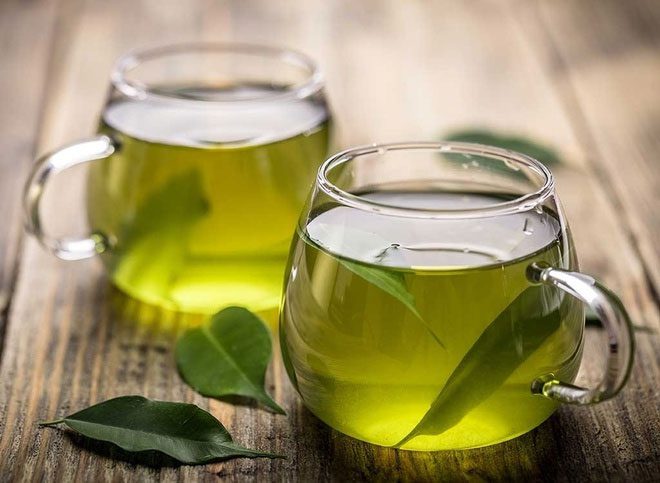Bad breath is a common issue for many people, but it’s important to know that our habits significantly impact the odor of our breath.
Solutions for Fresh Breath and Confidence
1. Brush and Floss Daily
Brushing your teeth twice a day for about one minute each time is crucial for preventing bad breath. Flossing helps eliminate plaque and food particles in areas that a toothbrush can’t reach, which are often the causes of bad breath. Therefore, combining brushing and flossing is an effective way to improve oral health.
2. Use Baking Soda
Baking soda helps maintain a stable pH level, significantly reducing the risk of bad breath. It can be used in various ways, such as mixing it with your regular toothpaste or using it as a mouth rinse for a naturally fresh breath.

3. Eat Zinc-Rich Foods
Zinc has properties that inhibit the growth of harmful microorganisms, helping to reduce bad bacteria and microbes, boost immune function, reduce inflammation, and prevent bad breath. Therefore, you should include zinc-rich foods and fruits in your diet.
4. Stay Hydrated
Water helps prevent bad-breath-causing bacteria by neutralizing acids in the body. Aim for at least 10-12 cups of water daily, or consume vegetable and fruit juices to help reduce odor in your breath.
5. Consume Raw Vegetables
Raw vegetables are rich in nutrients that detoxify and reduce inflammation in the body. Additionally, they are high in vitamins and minerals. Eating raw vegetables can minimize the risk of plaque and bacteria in your teeth. Some vegetables you should eat raw include celery, parsley, and thyme.
6. Use Pure Peppermint Oil
Pure peppermint oil not only freshens your breath but also helps eliminate harmful bacteria in your mouth caused by acidic foods. Applying a drop of peppermint oil to your toothbrush and then rinsing with warm water can help alleviate concerns about bad breath.
7. Limit Alcohol and Smoking
Smoking and alcohol consumption are among the leading causes of bad breath. Try to limit alcohol and tobacco to reduce the risk of bad breath.
8. Focus on Your Diet
You should maintain a diet rich in green vegetables and fruits. Opt for alkaline foods and avoid acidic ones. Limit your intake of onions and garlic. Fennel seeds and cloves should also be included in your diet for fresher breath.
9. Foods that Help Eliminate Bad Breath
- Yogurt: According to WebMD, yogurt contains beneficial probiotics that help combat bacteria causing bad breath. Research from the International Association for Dental Research shows that consuming 179 grams of unsweetened yogurt daily reduces hydrogen sulfide levels, a compound that causes bad mouth odor. Regular yogurt consumption also reduces plaque accumulation and prevents gum disease.
- Lemon: The acidity in lemons regulates saliva production, helping to eliminate harmful bacteria in the mouth. You can drink warm lemon water with peppermint for effective bad breath relief.

Green tea is also rich in polyphenols, which are effective in eliminating mouth odor.
- Green Tea: Many studies show that catechins, natural antioxidants in green tea, can combat bacteria that cause bad breath. Like parsley and basil, green tea is also rich in polyphenols, making it highly effective.
- Water: According to Eating Well, most odor-causing bacteria thrive in anaerobic conditions. This means they thrive in dry mouth environments. Therefore, drinking water helps flush out food particles and trapped bacteria in the mouth. This habit also stimulates saliva production to effectively cleanse the mouth.
- Apples: Apples are also high in polyphenols, which are very useful for breaking down odor compounds. They also reduce plaque and increase salivary gland activity, helping keep the mouth cleaner.
- Ginger: Not only does ginger soothe the stomach, but it also helps combat strong mouth odors. Eating a piece of ginger after a meal can cleanse the palate and freshen breath. You can also add sliced ginger to tea or warm water, along with a bit of lemon.
- Fennel Seeds: An Indian remedy for bad breath is chewing on a few fennel seeds. This increases saliva production, washing away bacteria in the mouth, while neutralizing unpleasant odors and aiding digestion. Additionally, fennel oil has antibacterial properties that combat bad breath.
- Guava Leaves: Guava leaves are a folk remedy that can treat many ailments, including diarrhea, intestinal inflammation, and bad breath. Guava leaves contain tannins, oxalic acid, and phosphoric acid, which help eliminate bad breath, whiten teeth, and effectively remove plaque. How to Use: Take a handful of young guava leaves, wash them, boil them with a little salt, let the water cool, and use it as a mouthwash three times a day. Regular daily use is recommended.
- Salt: Salt is a common cooking ingredient. In addition, salt is an effective disinfectant and can eliminate odors in the mouth. How to Use: Mix salt with water to create a dilute saline solution, and use this solution three times a day. This saline solution effectively prevents plaque buildup that causes cavities and kills bacteria on the gums and tongue.
- Honey: Honey contains antibiotic properties and antibacterial effects. Therefore, using honey and lemon for mouth rinsing daily can help reduce bad breath.
- Parsley: The fragrance and high chlorophyll content in parsley help eliminate odors. The compounds in this herb can combat sulfur compounds that cause bad breath. It can be eaten directly or juiced with a little warm water for drinking.
- Pineapple Juice: Drinking or chewing on a few slices of pineapple for 2-3 minutes can reduce bad breath. Make sure to rinse your mouth or drink some water afterward to remove any remaining sugars.
- Lemon Water: Vitamin C and antioxidants reduce gum inflammation and periodontal diseases. Drinking lemon water or rubbing a little lemon on your teeth and tongue can help prevent bad breath. However, do not use too much lemon water in one day, as high citric acid levels can erode teeth.
- Oranges: Many people experience bad breath due to insufficient saliva production to cleanse bacteria. Oranges are not only a healthy dessert but also contribute to oral hygiene. The vitamin C in oranges helps increase saliva production, eliminating foul breath.
What Lies Beneath the Desert Sand?



















































